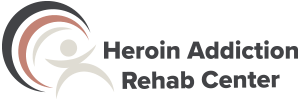Heroin use can profoundly devastate a person’s health and well-being, both short-term and long-term. Understanding these health risks of heroin addiction can help a person identify the critical steps to take to start the recovery process. Or it can help a loved one support their friend or family member in getting the help needed to overcome an addiction.
When people use heroin, they are putting themselves at risk of many health risks. Immediately following use, there is a chance of overdose that can lead to death if not treated immediately. Overdoses can occur because the user can’t know how much of the drug they are taking or the purity of the drug they are taking. For this reason alone, it is crucial to seek help for heroin addiction as soon as possible.
What Is Heroin Addiction?
Heroin addiction is when a person compulsively seeks and uses the drug despite its harmful effects. It is a chronic and relapsing condition. It is considered a brain condition, as it alters the structure and function of the brain.
The path to heroin addiction begins with the voluntary taking of drugs. But over time, a person’s ability to choose not to do so becomes impaired. Seeking and consuming the drug becomes compulsive. This behavior results primarily from the effects of long-term drug exposure on brain function.
Fortunately, numerous treatment options are available to help individuals overcome this debilitating condition. Among them is addiction treatment in Marne, Michigan, which can offer a comprehensive, supportive, and welcoming environment to aid individuals on their journey to recovery.
Addiction treatment includes an integrated approach that combines evidence-based medical treatment, therapy, education, psychological support, and aftercare services. This allows patients to have access to a variety of treatment approaches tailored to their individual needs. With the help of an experienced team of professionals, individuals can safely detox from heroin and start their journey to sustained sobriety.
Warning Signs of Heroin Addiction
Recognizing the warning signs of heroin addiction can be crucial in early intervention and seeking a suitable heroin rehab program.
Some of these warning signs may include:
- Physical symptoms – Rapid weight loss, frequent flu-like symptoms, needle marks or infections at injection sites, or constant sleepiness
- Behavioral changes – An increased need for privacy, withdrawal from friends and family, loss of interest in activities previously enjoyed, and changes in personal grooming habits
- Financial problems – Unexplained lack of money, frequent borrowing, or stealing
- Legal troubles – Incidents with law enforcement, arrests for theft, or possession of drugs
These signs often indicate a growing dependency on heroin. It’s imperative to act quickly and seek professional help, such as a comprehensive heroin rehab program, when these signs begin to manifest.
Understanding Long-Term Effects of Heroin Use
Understanding the long-term health risks of heroin addiction is an essential step toward recognizing the gravity of the situation and the urgent need for intervention.
Regular heroin use can lead to numerous health complications, such as:
- Collapsed veins
- Liver disease
- Lung complications
- Mental health conditions like depression and antisocial personality disorder
It can also increase the risk of infectious diseases like HIV and Hepatitis C due to shared needles. The permanence and severity of these conditions often necessitate a comprehensive approach to treatment, which is what a drug rehab program offers. These programs not only address the immediate physical consequences of heroin use but also provide therapeutic support to tackle underlying mental health issues and facilitate a successful path toward recovery.
How to Find Heroin Addiction Treatment
Once you’ve identified the health risks of heroin addiction and understand the need for professional intervention, finding a suitable treatment program is essential.
When seeking heroin addiction treatment, it’s essential to consider several factors to ensure a successful recovery journey. You may start by consulting with a healthcare professional who can provide guidance and recommendations based on the individual’s unique needs and circumstances.
Exploring different treatment options, such as residential treatment, outpatient treatment, and detoxification programs, is crucial. Each offers its benefits and could be more suitable depending on the severity of the addiction and the individual’s circumstances.
Additionally, consider the location of the treatment center—while some may find it beneficial to stay close to their support network, others may prefer a fresh start in a new environment. Lastly, ensuring the program provides mental health support is vital, as addressing underlying mental health issues is critical to a comprehensive recovery process. A supportive, welcoming environment can significantly enhance the effectiveness of treatment and pave the way to a sustained, long-term recovery.





